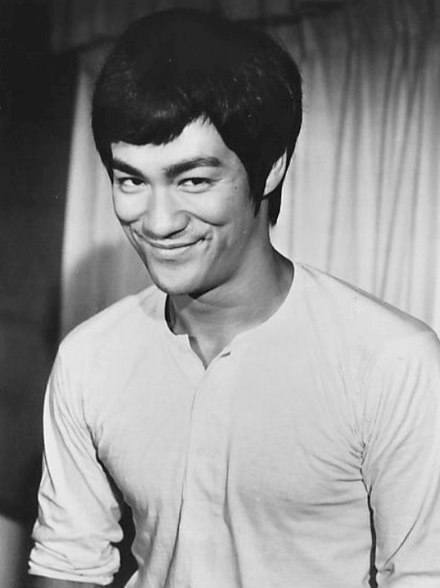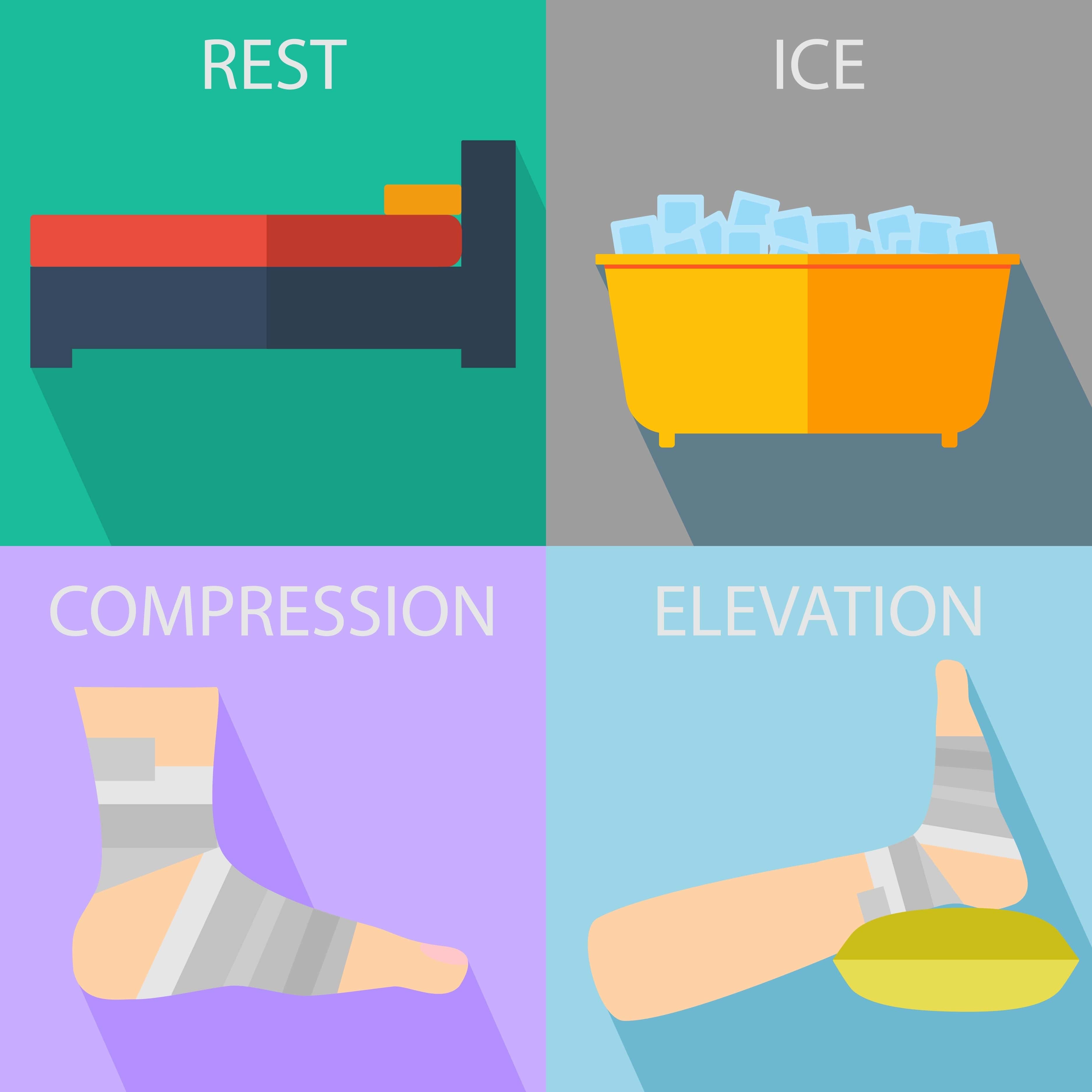Undeniable Benefits of Sleep in Combat Arts Workout Recovery
Martial artists often drive themselves, pushing harder, training longer, focused on achieving a high level of perfection within their chosen styles. Many people push themselves to jump out of bed early, cheating their bodies of sleep, training every day, all year long, even while on vacations from work. It turns out that this is not the best way to achieve the optimum in physical conditioning.
In fact, this tendency to always push while not valuing the mental and physical benefits of adequate sleep, rest, and entertainment may force many athletes into lower performance levels than they might otherwise achieve. The way to achieve the highest performance levels is the opposite of what most people think.
Bruce Lee Slept 8 Hours a Night

Source: Wikipedia
Bruce Lee worked his body like a machine—and then made sure to lock in 8 hours of sleep every night. Bruce Lee has left an incredible gift to the world by documenting his training, nutrition, and philosophical ideas.
Lee was a great believer in the restorative powers of sleep. He also ensured he had two super intensive training workouts a day, relaxing downtime, kid time, family time, teaching and friends time [1].
He understood the power of rest and its ability to rejuvenate and only restore function but enhance the body's ability to grow stronger.
Sleep Is Critical
During rest, and especially sleep, is when the body takes micro tears in muscles, micro breaks in bone, and applies healing aspects to recreate them into a new version that is stronger than before.
This is essentially the definition of strength conditioning, pushing the body to its limits so that as it repairs itself new layers of cells, muscles, and bones are put down to create a stronger version.
Rest is a critical aspect of training and an important element of physical recovery. Rest is basically the combination of time spent not training, and both passively and actively resting. The most powerful athletes in the world utilize sleep and rest as a major component within their training programs.
Sleep Deprivation Kills
Sleep deprivation will kill you faster than starvation.. That is how incredibly important sleep is to body repair. People tend to experience the adverse effects of sleep deprivation within 24 hours.
Athletes Who Sleep More Have Longer Careers
There have been many research studies with the same results. Athletes who deprive their bodies of sleep, wake up early to train more, go to sleep late, and consistently suffer fatigue do not remain on the team or in the league.
One study found that the length of MLB player careers could be correctly predicted by how much sleep and rest they got on a regular basis.
The players who were consistently fatigued were less likely to remain in the league three seasons later. In every study, an increase in sleep hours also predictably meant a decrease in emotional stress, anger, irritation, and frustration.
College Swimmers and Basketball Players Break Records with More Sleep
College swimmers and basketball players break records with more sleep. Two more studies researched the difference increasing sleep to 10 hours a night makes on athletic performance.
Both swimmers and basketball players consistently turned in higher training and competition performances, and suddenly broke many athletic records with increased sleep time.
Are You Getting Enough Rest to Ensure Your Body and Mind Are Recovering Well?

Roger Federer Sleeps 10 to 12 Hours a Day
Professional tennis player Federer gives his body a beating when training and requires extensive sack time to keep that extra edge and those 100 mile an hour serves.
Recovery Time

Recovery is more multilayered and means the techniques utilized to support and maximize the body’s natural repair mechanisms.
These different techniques include, but are not limited to, rest, good hydration, posture, sleep, nutrition, using Rest, Ice Compression and Elevation (R.I.C.E.), stress management, massage, heat soaks, herbal supplements, essential oils, stretching, deep tissue myofascial release techniques, etc.
Recovery Techniques
Proper recovery techniques support muscle and soft tissue repair, allowing bones to remodel, nervous system repair, hormonal and chemical rebalancing, mental and emotional renewal, and more.
Passive rest means that an athlete takes time out from training, totally rests the body, and does not work out at all during that day, couple days, or week, etc. Active rest, on the other hand, means continuing to move but at a lower intensity level.
One approach is training different muscle groups on alternate days of the week. It could mean swimming as relief from load-bearing exercise, for instance.
Or continuing to train, but at a greatly reduced intensity level, such as only 40 or 50 percent of normal training intensity, so the body is still moving but also resting by only doing a very light level of exercise.
Gold Medal Winner Usain Bolt Considers Sleep Most Important
By 2016 Bolt became the first man in history to win 6 Olympic gold medals in sprinting. He is a legendary athlete. Bolt’s number one prescription for winning? Tons of sleep! “Sleep is extremely important to me—I need to rest and recover in order for the training I do to be absorbed into my body,” says Bolt [3].
Active Rest
Passive Rest
Athletes Bench Press Less Weight With Less Sleep
It only took 4 days of restricted sleep for the difference in performance to show up. Restricted sleep for only 4 days made maximum bench press weight drop by 20 lbs.
Americans Value ‘Busy-Ness’
NBA professional basketball player LeBron James swears by 12 hours of sleep a night, but nobody calls him lazy! American society tends to perceive constant striving and the competitive ‘go-getter’ attitude as desirable, positively rewarding students, athletes, and those in the workforce who adopt this attitude and lifestyle.
The importance of proper rest to support the athletic body cannot be overemphasized. Americans particularly tend to be chronically tired. Chronic exhaustion is a very serious issue for athletes, since it reduces response time, interferes with body and environmental awareness, risks breakdown of tissues and bones, can lead to overtraining, physical, mental, and emotional exhaustion, and just like driving a car when overtired, increases the risk of accident and injury to self and others.
” Sleep is so important for recovery. Get off social media & get more sleep [4]. ”
Leah McCourt trains at least twice a day in Muay Thai, Brazilian Jiu-Jitsu, boxing, wrestling, sparring, sprints, and strength training. This rigorous schedule requires the body to have ample time to absorb the regimen to grow. Without it, the body will weaken.
Leah McCourt,
MMA Champion
Source: twitter.com/leahmccourtmma
Surprise Your Body
Periodically surprise your body by mixing it up and starting exercises on the opposite side of the body, facing a different way than normal, lifting heavier weights for a day, starting with kicking rounds and lower body movements first instead of the upper body, for instance. Keep your mind and body fresh by doing the last stuff first, etc. If this means training harder that day, add in a little extra protein, drink extra water, give your body more sleep, so it receives all the benefits of that intensive training workout.
More Sleep Improves Performance
This issue of feeling chronically tired and exhausted is so pervasive in American society that the military and the Center for Disease Control (CDC) performed studies on how it affects different jobs, particularly those with high technical and mental acuity requirements such as surgeons, doctors, nurses, flight attendants, etc.
The United States Military Academy ran a four-year study of sleep in the military training regime. They researched the difference between those who slept the normal 6 hours of sleep a night, and recruits who were allowed 8 hours of sleep per night.
The study was conclusive. Researchers found that extending the allotted sleep time from 6 hours a night to 8 hours a night resulted in improved academic performance, memory consolidation, and learning capacity.
Sleep More—Lose Weight, Just Ask an MMA Expert
P.R. Cole, MS, RD is the nutritionist at the TapouT Training Center in Las Vegas, Nevada, and the founder of Fuel the Fighter LLC. She works with MMA fighters and athletes to optimize their performance.
She says, “Quality sleep is vital for competitive athletes since it supports the immune system…Getting enough sleep is also an important aspect of weight management.

Lack of sleep causes an increase in hunger hormones and a decrease in those hormones that tell you that you’re full.
Sleep More—Not Less
The CDC study found poor sleeping habits and sleeping less than 7 hours a night can have a severe impact, resulting in up to 50 percent higher difficulty in performing normal daily tasks. Exhaustion is estimated to be one of the primary causes of car accidents, mistakes made by surgeons, doctors, flight attendants, and medical emergency personnel.
The current resident workload is too strenuous on their ability to safely care for patients. Too many 24-hour shifts worked by hospital interns cause medical mistakes that harm and may even kill patients, according to a new Harvard Medical School study. The study found [6]
Fatigue Similar To Alcohol Impairment
Extensive research has been done on the effects of fatigue on the body, training, learning, and job performance. Research has found conclusively that fatigue’s effects are similar and comparable to human impairment of reaction time as with alcohol impairment. So, a surgeon working on you who happens to be extremely fatigued is similar to having surgery performed on you by a doctor who’s been drinking.
Sleep Is Not Optional?
The human body was not designed for nonstop competition, striving, and working. It requires downtime and recovery opportunities in order to function optimally. Bones need time to destroy old cells and produce new ones, muscles and other soft tissue must have relaxation in order to incorporate training, repair, and strengthen. And sleep is not optional, but very necessary for enhancing these recovery cycles of the body and mind.
Martial Arts Improved with More Rest and Relaxation
Rest and recovery are usually the least understood and most underutilized ways to enhance athletic performance, and are critical components of any successful training program. Athletes who are sleep deprived will often see aerobic endurance levels drop.
They will typically have higher levels of the stress hormone cortisol because of slight negative changes in hormonal levels.
Sleep deprived athletes often experience a drop in human growth hormone (HGH) levels, as well, which is very serious since this hormone is necessary and utilized during tissue repair.
Training and Rest are Both Needed for Building Muscle
Training activates Satellite Cells, along with increasing growth factors. Muscle growth occurs when muscle protein is being synthesized faster that muscle protein breakdown.
That happens during sleep, which is why athletes require 8 hours or more of sleep every night to allow for muscle growth and physical recovery. The body needs time for repair of different physiological systems such as ligaments, tendons, muscles, and bones.
Muscles receive direct blood flow from veins which allows them to repair and recover quickest. Care must be taken with ligaments, tendons, and bones because they do not have veins and direct blood flow feeding their recovery.
They receive only indirect blood flow, meaning they are not fed nutrients directly, which makes repair and recovery slower, and leaves them more vulnerable to stress and over-training.
Beware Sleep Deficit Mode
A constant lack of sleep can result in a person not even knowing when they are tired anymore. Essentially, they quit noticing nonstop exhaustion. The average person requires between 7 to 10 hours of sleep every night. Athletes and children require more. When a person continually gets less sleep than they need every night, the body goes into sleep deficit mode.
It is possible to become accustomed to sleep lack, but over time it may become a dangerous situation since eventually reaction times and brain functions will slow, an emotional balance may be disrupted, and physical safety, while working or training, may be compromised.
Fatigue Decreases Performance
Athletes especially can have a difficult time recognizing when more is not better. Our society stresses winning at all costs, and it can be challenging to realize the importance of giving the body sufficient time to stop, rest, and recover. A few months of insufficient rest and recovery, or overtraining, can lead to extreme physical, mental, neural, and adrenal exhaustion. This increases the risk of injury or illness while decreasing the athlete’s performance.
Naps are Underrated

When night sleep time is short, naps are a great way to boost the body and can be a good way of compensating. Naps can restore alertness, enhance performance, reduce mistakes and accidents. It turns out that the length of the nap is a key here, however, to effectiveness. A 20 to 30-minute nap will usually improve thinking and alertness, but longer naps may create undesired grogginess. If so, just allow a little more time to waken fully.
Meditation Reduces Stress and Improves Concentration
Meditation is another excellent option when optimal sleep time is not available. Meditation is a system of guided thought and concentrated focus that improves health, quiets the mind, benefits heart health, and lowers stress levels.
Most Athletes Require 8 to 10 Hours Minimum Sleep for Optimal Performance
The amount of sleep needed depends greatly on intensity, frequency, and type of training workouts performed. It also depends on individual requirements influenced by genetic makeup, and lifestyle. An athlete who intensely works out all muscle groups in a single day may require more sleep time or even an entire day off.
Whether the person is a trained athlete or a very inexperienced beginner will make a difference, as well, since a beginner may require more sleep and rest between training sessions in the beginning, until body adaptations click in. Especially for beginners, consistently training at least 2 to 3 times a week will be enough to effectively strengthen and push muscle growth. Beginners may find that their sleep requirements increase once they begin training. Over time, sleep needs may become less intense, or stay increased, if training intensifies.
World Class Combat Athletes Leverage the Art of Rest to Heal and Restore to Their Body!
Learn Their Secrets!
Martial Artists--Get to Sleep Before Midnight
Get more bang for your sleeping buck! It turns out that optimal sleep hours providing the most muscular, hormonal, and mental health recovery time are those before twelve at night. Hours spent sleeping before twelve at night are most efficient at supporting total physical and mental recovery.
8 Natural Methods for Improving Sleep
Most people find that simply increasing the intensity or frequency of their training workouts will aid in falling asleep, remaining asleep, and getting the deepest REM and healing sleep time. If you have issues with insomnia, or waking often in the middle of the night with a busy brain, try these tips.
Sleep With Little Or No Artificial Lights
If getting to sleep or remaining asleep is an issue, try sleeping in a very natural setting, with no artificial lights from clocks, computers, phones, etc.
Place Blackout Drapes Over Windows
The light coming in through windows can be a problem. Purchase extremely heavy, dark drapes or ‘blackout’ drapes to cover windows when sleeping.
Remove All EMF And WiFi Devices From The Sleeping Area
Turn off all wifi features for computers, phones, etc., at night or when sleeping. EMFs and wifi in the area can trigger the brain into activity.
Get More Fresh Air
Keeping a window cracked open can improve the chances of achieving restful sleep since fresh air and cooler temperatures tend to improve sleep quality.
Leverage Quiet Time
Make the hour before bed quiet time, reading a magazine or book, taking a bath, meditating, or other quiet, low key activities will help signal the body that it ’s time to rest.
Supplement Your Body's Producing Hormone - Melatonin
Taking either 3, 5, or 10 mg. one hour before hoping to drop off can really make a difference. Ensure it's good quality, with no chemical additives.
Try Other Sleep Supplements: 5-HTP
Take 50 to 150 mg. about 30 to 60 minutes before bedtime, starting with the lower dosage for at least 3 days before increasing if needed to produce good sleep.
Manage Premenstrual Syndrome (PMS)
L-theanine also reduces the symptoms of PMS, which allows the body to relax and support the ability to quickly fall sleep.


